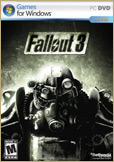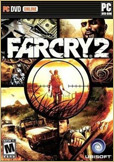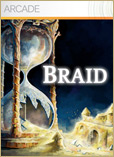







|
Fallout 3
Bethesda Game Studios
Some people say a GOTY does not exist, but that's not true. I've been to the edge. I've touched the face of GOTY.
How do I know? Well, you just know.
It's not something I can easily describe, this mystical GOTY aura. GOTY doesn't talk to me in the glazed-over void of a WoW raid, or during the adrenaline-fueled addiction of a Counter-Strike match. The touch of GOTY feels more satisfying, more dangerous--somewhere between reading a great book and driving drunk.
For me, I think it has something to do with not knowing the boundaries. It's about being dropped into a new world, with interesting rules and mechanics, and being unsure of what the game will throw at you next--or how best to deal with it.
This is a trait that I most closely associate with dense PC games, but that's not fair or accurate. I've felt the GOTY force flowing through me while playing Mario and Zelda. And I felt it with Fallout 3, no matter the controller.
How long did I spend strategizing over statistics and deliberating dialogue options? How many times did I laugh after a satisfying, unpredictable battle? How often did I wander the wasteland, expecting to find fascinating things over every hill, and actually being rewarded for it? How original is that?
By the end of Fallout 3, the boundaries were more defined, but I never felt familiar enough with the game to be bored by it. The haunting image of the bombed-out D.C. skyline never lost its effect. I never grew tired of discovering new quests, and discovering new ways to blow up zombies.
Fallout 3 wasn't just a bit of fun--it was consistently entertaining for its entire length, and then left me wanting more. It was the most complete, well-rounded, thoroughly engaging game released this year. It was my personal GOTY.
But GOTY speaks to us all in different ways.
Nick Breckon
|





|
Far Cry 2 (PC, Xbox 360, PS3)
Ubisoft Montreal
Far Cry 2 is uncompromising in the way few big-budget video games ever are. Sometimes compromise is a good thing; sometimes it's comforting--sometimes, you just want Far Cry 2 to meet you halfway. Maybe you could keep that scavenged weapon for more than five minutes before it craps out on you, or maybe you could just get your missions from a menu instead of returning to camp, or maybe you could double-click your destination on the map instead of spending ten minutes slogging across the desert to a bus stop because you drove your buggy into a ravine.
Maybe.
But you don't really want that, even if you think you do. Because if you got those things, you wouldn't have panicked hilariously and thrown that grenade after your gun jammed, sending the whole base up in flames. Or you wouldn't have wandered into the hot zone and grabbed the diamonds before high-tailing it with the whole town in tow. Or you wouldn't been interrupted by that shockingly gorgeous vista at sunset, gazelles slowly passing by.
Far Cry 2 is a statement on systemically-driven gameplay over content-driven gameplay. It's not entirely a complete statement in that regard, but considering the lack of contemporary competition, it's a worthwhile one.
It asks a lot of you, and during those sessions when you don't happen to fall under its spell, it can be best administered in short doses. But even that inconsistency is refreshing. As corridor shooters become ever more geographically constrictive, and most open-world games are defined by series of discretely branching choices, and the high echelon of gameplay success is often reduced to a repeating 30-second unit of fun, it took some balls on the part of Clint Hocking and his Ubisoft Montreal team to make this game the way they did.
I talked about Far Cry 2 on the podcast all throughout October and November, and I'd keep talking about it every episode if we didn't record in the same room, where I'm within reach of physical retaliation by my co-hosts.
Chris Remo
|





|
Braid (Xbox 360)
Jonathan Blow/Number None
On the surface, Braid is already a quality game. It's a beautiful game, for sure -- it looks great, it sounds great. Like Little Big Planet, its foundations in the language of Mario-style 2D platforming make it painless to pick up and play -- you're in the game literally before you know it. The power to rewind time is instantly gratifying -- both a fun new toy, and a novel and welcome rejection of death-and-restart, replacing it with an invitation to explore any possibility and sniff out every corner, consequences be damned.
As you progress, the game happily screws with what you thought were its core fundamentals. Entire levels start behaving like the ghosts in a Mario game, only moving when you do. Rewinding time will not just put things in reverse, but will spawn a playback of your last go-through, a shadow you who replicates your last few moves before fading away. The further in you get, the further Braid digs into its bag of tricks, never ceasing to surprise you with clever new ways to bend and warp itself through the lens of time manipulation.
Though, all that said, Braid isn't reinventing anything. It hasn't revolutionized the platforming genre. It isn't refining, or redefining or whatever else. On the tree of gaming, Braid's an evolutionary dead end -- a little green shoot poking out of the dusty branch of 2D platformers, destined to sit there alone forever. Unlike most titles ever considered for Game of the Year, Braid's various gameplay systems won't be picked apart with awe or consideration by future generations of gamers, game designers, and critics. There will be no raging 15 page forum threads debating the impact of Braid's puzzle structure, or its stylized visuals, or even its time-shifting mechanic on the overall gaming conversation, because they won't make an impact.
Fortunately, that doesn't matter. Braid takes a collection of gaming's forgotten dead ends, closed doors, and abandoned paths, and intertwines them into something wholly new. The combination might only work once, and this game is all we'll get, but that's life, and it's okay.
It's rare to come across a game as consistently surprising and inventive as Braid, and even rarer for that game to try and ignite your mind, to create thoughts stretching beyond making the next jump or reaching he next save point. Your mileage (and my hyperbole) may vary, but it's a rare game that, through the simple act of a missed jump, has the potential to call into question your perception of cause and effect, not just for moments in a game, but for moments in your life.
For that and more, Braid is a Video Game from the Year 2008.
Jake Rodkin
|



|
|